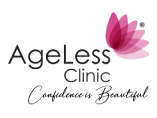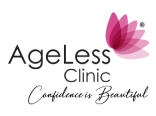The perfect atmosphere for a relaxed treatment. Well trained therapists, calming ambience and awesome outcomes of my treatment! Thanks.
Do you know Excessive
Sweating can be treated?
(that too in just 30 mins :) )
- Home /
- Concerns /
- Excessive Sweating /
The Problem
Sweat can be celebrated while working out at the gym but on a working day or in an important meeting, the bad odour and sweaty patches on your clothes can be embarrassing. Excessive sweating can or cannot be due to an underlying medical condition but is a common concern amongst men and women especially in rising temperatures and humid weather conditions.
Causes & Types Of Excessive Sweating
Sweating is a natural process that helps regulate body temperature and cool the body down when it’s too hot. When the body senses an increase in temperature, such as when it’s hot outside, when you exercise, or when you have a fever, it activates the sweat glands to produce sweat. Similarly, when you feel anxious, nervous, or stressed, your body’s sympathetic nervous system is activated, which can also trigger sweating as a response. Once the body temperature returns to normal or the stressful situation has passed, the nerves that signal sweating are put on hold, and sweating decreases or stops.
However, in people with hyperhidrosis, the nerves that signal sweating may not be put on hold, and sweating can continue even when there is no need for it. This can result in excessive sweating that can significantly impact a person’s daily life. There are mainly two types of hyperhidrosis:
Primary Hyperhidrosis – Primary hyperhidrosis, which is the most common type, has no known cause. It is thought to be related to a problem with the part of the nervous system that controls sweating. Primary hyperhidrosis tend to run in families and usually begins in childhood or adolescence.
Secondary Hyperhidrosis – Secondary hyperhidrosis is caused by an underlying medical condition or medication. Here are some of the conditions that can cause secondary hyperhidrosis:
- Overactive thyroid gland (hyperthyroidism)
- Diabetes
- Menopause
- Certain infections, such as tuberculosis
- Certain types of cancer, such as lymphoma
- Rheumatoid arthritis
- Alcoholism
- Heart failure
- Neurological disorders, such as Parkinson’s disease or spinal cord injuries
- Certain medications, such as antidepressants, blood pressure medications, and some antibiotics
In some cases, certain foods, or drinks, such as spicy foods or caffeine, can trigger sweating in people with hyperhidrosis. Emotional stress and anxiety can also exacerbate sweating in some people. Secondary hyperhidrosis can also affect skin health, emotional wellbeing, and social relationships.
The Solution
Hyperhidrosis, whether primary or secondary can be controlled with certain lifestyle modifications, medications, and antiperspirants. But for many people, managing symptoms of hyperhidrosis like sweating in the armpit, palms, feet, and also moisture dripping from the various parts of the body can be challenging and can have an impact on the social and emotional wellbeing.
Injectables
Hear It From The Patients
You guys are best. The doctor is so amazing and honest with her suggestions. The best part is there were quite a few things that I forgot to ask her, but then the doc noticed it all and worked on it. She answered all the questions that i had in my mind. Am a loyal fan now.
Very professional. Clean and amazing staff..polite and well trained..Very good understanding of clients needs and requirement. Dr. Manisha explained everything very well and was a delight to have her as my doctor. Wish had visited them earlier.
We all are beautiful in our own ways but taking a little extra care just makes you feel more beautiful and confident. Thank you AgeLess Clinic!!!
Therapist is polite, cheerful. I have been having facials here for last few years & am very satisfied with the service.
The treatments here are advance and healthy…The staff is warm and resourceful…Great blend of technology with hospitality…
Satisfied! Very good attention & treatment done by therapists here!
Thank you Ageless for making me look flawless! Dr Bijlani is excellent with the work. The staff and the manager are super helpful and always smiling. Lots of love and smiles.
– A loyal patient
This was my first experience for fine hair laser service, and I am thrilled with the result. Trust, result gets better with another more rounds of service. Thanks to the AgeLess team. Keep up the good work.
FAQ’s.
How do you know if you have excessive sweating?
Excessive sweating, also known as hyperhidrosis, is a common concern characterized by sweating beyond what is necessary to regulate body temperature. Here are some signs that may indicate excessive sweating:
- Visible sweating: If you notice visible sweat on your body, particularly in areas such as the underarms, palms, and soles of the feet, you may have hyperhidrosis.
- Sweating interferes with daily activities: If sweating interferes with your daily activities or causes you to avoid certain situations or social interactions, it may be excessive.
- Frequent sweating: If you find yourself sweating more frequently than others, even when it’s not particularly hot or you are not physically active, it may be a sign of hyperhidrosis.
- Strong body odour: Excessive sweating can lead to an unpleasant body odour, particularly in the armpits, due to the bacteria that break down sweat.
Can excessive sweating cause skin issues?
Excessive sweating, also known as hyperhidrosis, can cause a variety of skin issues if left untreated. Here are some of the most common skin problems associated with excessive sweating:
- Skin irritation: When sweat is constantly in contact with the skin, it can cause irritation, redness, and itching.
- Acne: Sweat can mix with oils and bacteria on the skin, leading to clogged pores and acne breakouts.
- Fungal infections: Warm, moist areas of the skin, such as the underarms and groin, can provide an ideal environment for fungal infections like athlete’s foot and jock itch.
To prevent these skin issues, it’s important to manage excessive sweating. This may include using antiperspirants, wearing breathable clothing, avoiding triggers that cause sweating, and seeking medical treatment if necessary. Keeping the skin clean and dry can also help prevent skin irritation and infections.
Is hyperhidrosis a lifelong condition?
The duration of hyperhidrosis can vary depending on the underlying cause and the effectiveness of the treatment. In some cases, it may be a lifelong condition that requires ongoing management. In other cases, it may be temporary and resolve with treatment or lifestyle changes. While there is no known cure for hyperhidrosis, it can be managed effectively with various treatment options, including antiperspirants, medications, and surgical procedures. In some cases, lifestyle changes, such as avoiding triggers like spicy foods or stressful situations, can also help reduce symptoms. It is important to speak with a healthcare professional to determine the underlying cause of hyperhidrosis and develop an individualized treatment plan.
Advice
Looking for some more information on acne? Check out our blogs!

Botox for beginners
One of the most well-guarded secrets to wrinkle free faces for quite some time is hushed under the guise of a secret skincare regime or just called good genes and diet! While the not so good effects of Botox are more publicized than its sheer benefits, Botox under the care and hands of a skilled […]
Read More
Everything you need to know about BOTOX
Dr. Harshna Bijlani, Medical Head of The AgeLess Clinic & Celebrity Skin Expert discusses the worldwide phenomenon BOTOX and answers all the questions you may have regarding BOTOX. Some of the topics discussed:What is BOTOXHow does it workIndications for BOTOX – crow’s feet, anti-ageing, fine lines, sweating, jawline slimmingWhat is baby BOTOXWhen should you start […]
Read More

